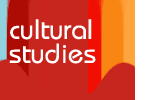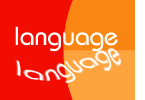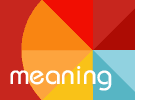

Introduction
 |
Cultural studies is a popular subject at many universities. In the Dutch department at University College London, for instance, there are a few cultural studies modules as part of the degree course in Dutch. |
The concept cultural studies is rather complex. To begin with the word 'culture' itself means different things to different people, such as great works of art and literature, or works of popular culture, such as pop songs and soap operas, or the way that particular groups of people live their everyday lives. Generally, when you talk about cultural studies as a subject at university it is not so much about another culture, but it has more to do with a particular way of looking at the world in which people live, and how and why people think, produce and do the things they think, produce and do. So whereas a text about the Netherlands might give you information about the structure of society, the kind of celebrations the Dutch have, or what the dominant social issues are, in cultural studies, we look at what meanings people attach to these issues. And as with the word ‘culture’, ‘meaning’ is itself not a straightforward concept. Words, for instance, have meanings, which you can find in a dictionary, but words carry many other meanings because of the connotations they have. Just think about the various connotations that the word ‘freedom’ conjures up to you.
 Clearly, language is an important aspect of cultural studies. People,
after all, give meaning to their lives through language, through the
texts they produce and read. And with ‘texts’, we do not
necessarily mean just written texts, but also spoken and visual texts,
such as conversations, TV programmes, films or posters. Texts can also
refer to events, such as football matches and the behaviour of fans.
In cultural studies we tend to look at ‘texts’ and try and
answer the question of what cultural meanings are created in these texts.
Clearly, language is an important aspect of cultural studies. People,
after all, give meaning to their lives through language, through the
texts they produce and read. And with ‘texts’, we do not
necessarily mean just written texts, but also spoken and visual texts,
such as conversations, TV programmes, films or posters. Texts can also
refer to events, such as football matches and the behaviour of fans.
In cultural studies we tend to look at ‘texts’ and try and
answer the question of what cultural meanings are created in these texts.
Frequently, people look at theories and concepts of power, politics, ideology and knowledge to answer this question. In this taster we won’t look at theories, but we will introduce one key concept in cultural studies: that of representation.
 Representations are made through material things, such as music, books,
TV programmes, newspapers and magazines, pictures, paintings and films.
They tell us how people see their world. Discovering meaning in a text
is a matter of interpretation, and interpreting is not an exact science.
Interpretation is dependent on the knowledge and experience you have
of the thing, e.g. Amsterdam, that is represented and also of different
kinds of representations, you would have seen or read in relation to
that. Often, it would seem that the way that something is represented,
for instance representing a young footballer that scores a few goals
at an international tournament as a hero, seems natural and obvious.
But the question you have to ask yourself is: is it so obvious? Maybe
it is in our own culture, but we can also imagine that there are cultures
or ways of thinking, in which the young football player will not be seen
as a hero until he has more experience, or has scored many more goals
in other tournaments, or unless he is, for instance, handsome, or married,
or the son of a well respected man.
Representations are made through material things, such as music, books,
TV programmes, newspapers and magazines, pictures, paintings and films.
They tell us how people see their world. Discovering meaning in a text
is a matter of interpretation, and interpreting is not an exact science.
Interpretation is dependent on the knowledge and experience you have
of the thing, e.g. Amsterdam, that is represented and also of different
kinds of representations, you would have seen or read in relation to
that. Often, it would seem that the way that something is represented,
for instance representing a young footballer that scores a few goals
at an international tournament as a hero, seems natural and obvious.
But the question you have to ask yourself is: is it so obvious? Maybe
it is in our own culture, but we can also imagine that there are cultures
or ways of thinking, in which the young football player will not be seen
as a hero until he has more experience, or has scored many more goals
in other tournaments, or unless he is, for instance, handsome, or married,
or the son of a well respected man.
So to get a taste of how this kind of cultural studies analysis works you can now have a go yourself at looking at different ways that Amsterdam is represented. We are not interested in what information you can learn about Amsterdam (although you probably will learn new things about Amsterdam), but in the different ways that this information is presented to us. How do the texts disclose hidden meanings behind the taken for granted ones, and how do they show different images and perspectives of Amsterdam?
We have chosen fragments from three different texts, all relating to Amsterdam: a tourist guide from the web, a popular song, and a short story. Each of these texts is followed by questions for you to answer. We provide you with some answers ourselves. However, our answers are not the one and only correct answer. These answers are our interpretations.
Activity
Before you read these fragments, take a few moments to reflect on what you know about Amsterdam and what kinds of 'images' you would expect to find of Amsterdam? |
 |
